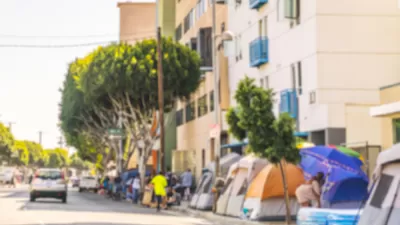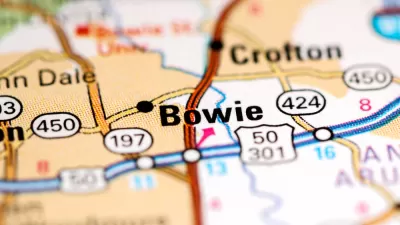Every 20 years, the Municipal Corporation of Great Mumbai (MCGM) publishes a Development Plan. Kristen Teutonico argues that past and current plans have been too grand for implementation and that the City should focus more on smaller-scale projects.
"The Development Plans always seem to hold the answers for a balanced and socioeconomically rational city," writes Teutonico. "But while they go into great detail on paper, the city never quite follows through on the implementation with equal rigour." Since 1964, the plans have focused on alleviating problems including sprawl, overzoning, inadequate infrastructure, housing, and transportation. "All of which," considers Tuetonico, "as of the end of 2012, are still alarmingly present."
The lack of implementation, argues Teutonico, is due to new plans being developed before old problems can be addressed, a twenty-year lag behind changing conditions, and a government more interested in economic gain from investing in wealthier neighborhoods. Corruption and elitism need to be curbed, believes Teutonico, but "[i]n the meantime, rather than grand abstract plans every twenty years, what the city needs more of are practical and proactive thinking to pinpoint problems and solve them with articulated design solutions that have timelines, budgets and schemes that are easily attained." She mentions increasing public participation, building new public spaces, and establishing new bus routes as three small-scale, but realistic, plans that Mumbai can start.
"Large answers are not always the way to deal with large problems, and the web of tangles in Mumbai is too complex to unravel in one grand sweep," states Tuetonica. "In rethinking the grandiose nature of the Development Plan, perhaps the government can engage in smaller scale implementation ss [sic] and allow new regulations and ideas to take centre stage so that Mumbai can begin to envision its future and move beyond its paper urbanity."
FULL STORY: City of paper urbanism: how Mumbai can make plans it may actually implement

Alabama: Trump Terminates Settlements for Black Communities Harmed By Raw Sewage
Trump deemed the landmark civil rights agreement “illegal DEI and environmental justice policy.”

Planetizen Federal Action Tracker
A weekly monitor of how Trump’s orders and actions are impacting planners and planning in America.

The 120 Year Old Tiny Home Villages That Sheltered San Francisco’s Earthquake Refugees
More than a century ago, San Francisco mobilized to house thousands of residents displaced by the 1906 earthquake. Could their strategy offer a model for the present?

Ken Jennings Launches Transit Web Series
The Jeopardy champ wants you to ride public transit.

BLM To Rescind Public Lands Rule
The change will downgrade conservation, once again putting federal land at risk for mining and other extractive uses.

Indy Neighborhood Group Builds Temporary Multi-Use Path
Community members, aided in part by funding from the city, repurposed a vehicle lane to create a protected bike and pedestrian path for the summer season.
Urban Design for Planners 1: Software Tools
This six-course series explores essential urban design concepts using open source software and equips planners with the tools they need to participate fully in the urban design process.
Planning for Universal Design
Learn the tools for implementing Universal Design in planning regulations.
Clanton & Associates, Inc.
Jessamine County Fiscal Court
Institute for Housing and Urban Development Studies (IHS)
City of Grandview
Harvard GSD Executive Education
Toledo-Lucas County Plan Commissions
Salt Lake City
NYU Wagner Graduate School of Public Service





























